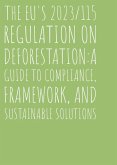The book begins by emphasizing the urgency of climate action, offering a clear understanding of net-zero frameworks, global agreements, and the roles of stakeholders. It delves into practical methods for measuring carbon footprints, addressing Scope 1, 2, and 3 emissions with advanced tools and lifecycle assessments.
Readers will discover key strategies for carbon reduction, including renewable energy adoption, energy efficiency improvements, transportation electrification, and circular economy practices. Innovations such as carbon capture, utilization, and storage (CCUS), energy storage systems, and decentralized energy grids are explored in depth.
The role of digital tools and AI in optimizing carbon reduction is highlighted, covering smart sensors, blockchain for carbon tracking, and digital twins. The book also tackles policy and governance, addressing climate policies, international standards, ESG reporting, and accountability.
Sector-specific approaches in manufacturing, agriculture, technology, and transport are showcased alongside inspiring case studies of corporate and city-level success stories. The book concludes with a clear roadmap to net-zero, metrics for success, and a vision for a resilient, low-carbon future.
Combining expert insights, advanced technologies, and real-world examples, The Path to Net-Zero equips readers with the knowledge to drive meaningful change toward a sustainable planet.
Dieser Download kann aus rechtlichen Gründen nur mit Rechnungsadresse in A, B, CY, CZ, D, DK, EW, E, FIN, F, GR, H, IRL, I, LT, L, LR, M, NL, PL, P, R, S, SLO, SK ausgeliefert werden.









